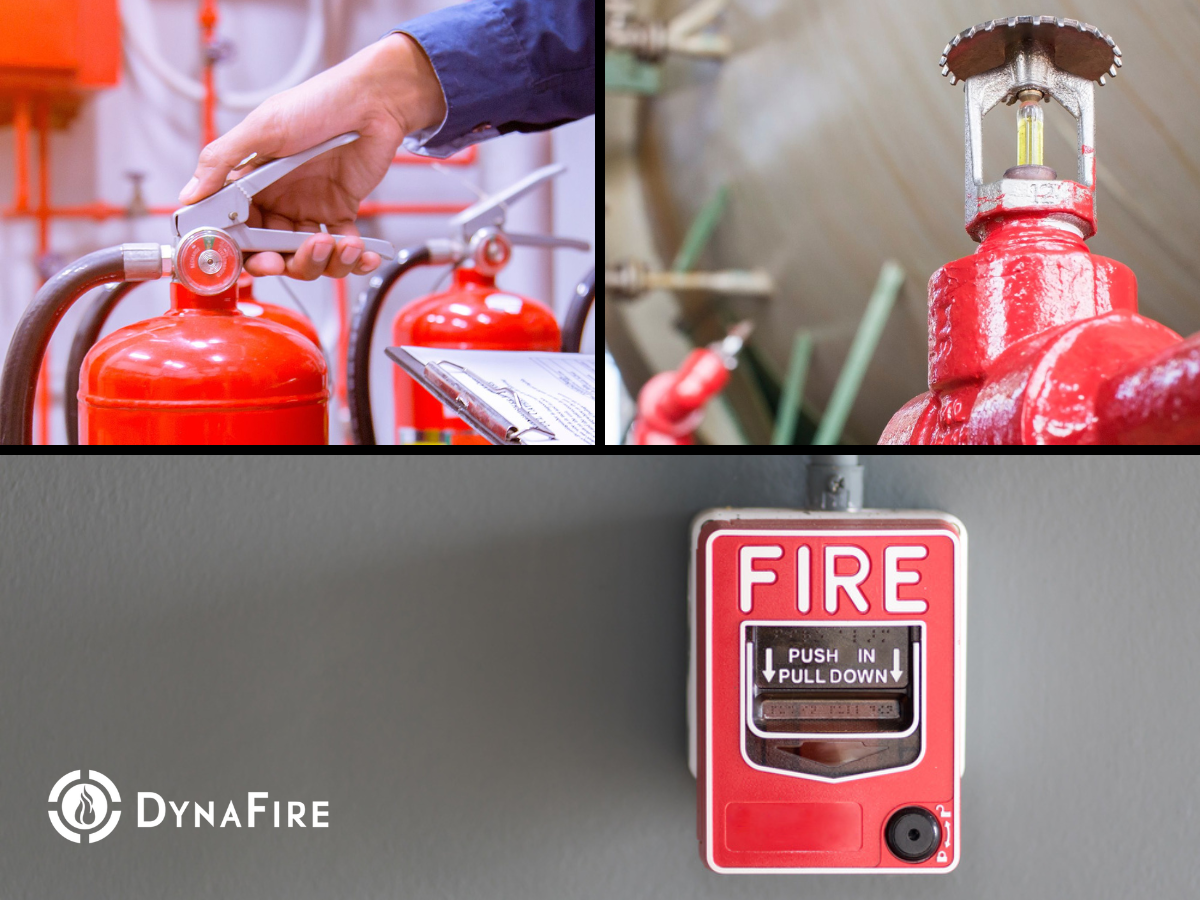Avoid failures during your next commercial fire system inspection. Learn the top reasons fire systems fail and how DynaFire can help keep your building compliant and protected.
If you’ve ever worried about passing your next commercial fire system inspection, you’re not alone. Fire inspections are designed to ensure your building’s fire protection systems work correctly and comply with local codes—but too often, small oversights or neglected maintenance lead to costly failures.
Knowing the most common reasons fire systems fail can help you avoid them and keep your building safe, compliant, and inspection-ready.
Why Do Commercial Fire Systems Fail Inspections?
Inspections are about more than paperwork—they’re about confirming your fire alarm, sprinkler, and suppression systems will work in an emergency. Failures usually point to gaps in routine maintenance, outdated equipment, or missed compliance updates.
Here are the top reasons your commercial fire system inspection might not go as planned:
Overdue Maintenance and Testing
Fire protection systems require regular servicing. Skipping inspections or maintenance leads to problems like:
- Corroded sprinkler pipes and heads
- Dead batteries in fire alarm panels
- Expired suppression system chemicals
- Uncalibrated or malfunctioning detectors
Solution: Schedule recurring inspections and maintenance with a qualified fire protection provider.
Obstructed or Altered Systems
Blocked sprinkler heads, painted-over detectors, or changes to building layouts without updating fire protection plans are frequent inspection failures.
Solution: Keep sprinklers and detectors clear, and consult a fire protection expert when remodeling or rearranging spaces.
Outdated or Noncompliant Equipment
Fire codes evolve, and older systems often fall out of compliance. This includes:
- Fire alarms that don’t meet NFPA 72 requirements
- Sprinkler systems with outdated components
- Suppression systems that no longer meet local code standards
Solution: Work with your fire protection provider to identify upgrades that bring your systems up to code.
Improper Documentation
Inspectors will ask for maintenance logs, testing records, and compliance documentation. Missing or incomplete paperwork is a common—and avoidable—reason for failure.
Solution: Keep organized, up-to-date records and ensure your fire protection company provides inspection reports after every service.
System Impairments Not Reported
If your fire protection system has been partially disabled (for renovations, system work, or due to damage) and you fail to report it or take corrective steps, your inspection will likely fail.
Solution: Notify your monitoring company and local AHJ (Authority Having Jurisdiction) about impairments and get them corrected as soon as possible.
How to Prepare for Your Next Fire Inspection
Passing a commercial fire system inspection doesn’t have to be stressful. Here’s how you can set your property up for success:
- Schedule Preventive Maintenance: Don’t wait for something to break. Routine service keeps systems running smoothly and helps spot problems before an inspector does.
- Do a Pre-Inspection Walkthrough: Have your fire protection contractor perform a mock inspection to catch issues ahead of time.
- Review Documentation: Ensure all records—inspection reports, maintenance logs, and system test results—are current and accessible.
- Train Your Staff: Ensure employees are familiar with evacuation procedures, alarm protocols, and the process for reporting fire system issues.
- Partner With Experts: A qualified fire protection company (like DynaFire) can help you navigate evolving code requirements and keep you inspection-ready year-round.
FAQs About Commercial Fire System Inspections
How often are commercial fire systems inspected?
NFPA standards generally require annual inspections, but certain systems (like sprinklers and alarms) may need quarterly, semi-annual, or even monthly checks depending on your building type and occupancy.
Who conducts fire system inspections?
Inspections are typically carried out by local fire marshals or AHJs, often in coordination with your fire protection provider.
What happens if I fail an inspection?
Failures may result in fines, re-inspection fees, or orders to fix deficiencies by a specific date. In some cases, business operations can be restricted until compliance is achieved.
Can a fire protection company help me prepare?
Yes! Partnering with a fire protection company like DynaFire ensures your systems are maintained, code-compliant, and ready to pass inspection.
Make DynaFire Your Fire Protection Partner
At DynaFire, we help businesses stay inspection-ready with full-service fire protection solutions. From system testing and maintenance to upgrades and monitoring, our team keeps your systems compliant, functional, and prepared for emergencies.
Contact us today to schedule a pre-inspection review or learn more about our comprehensive fire safety services.






